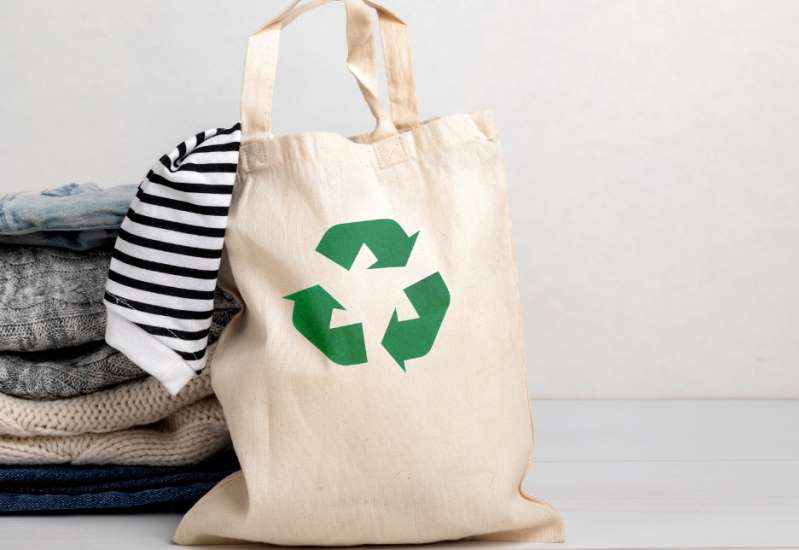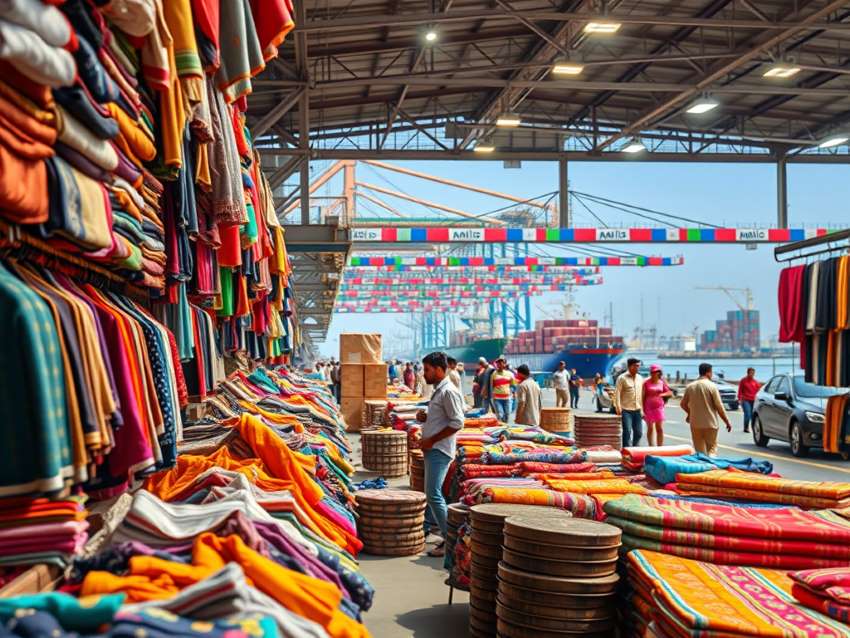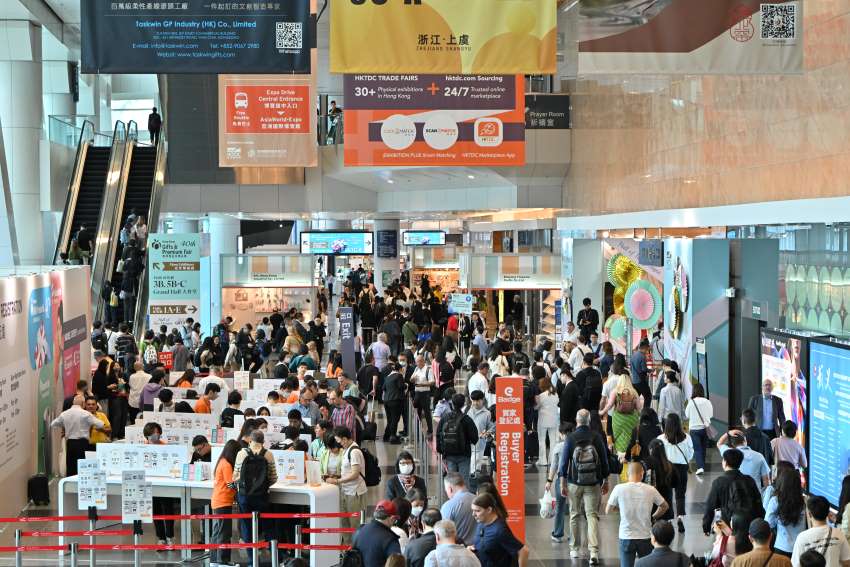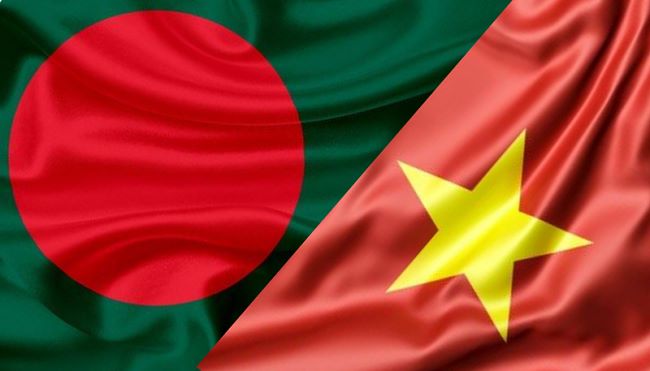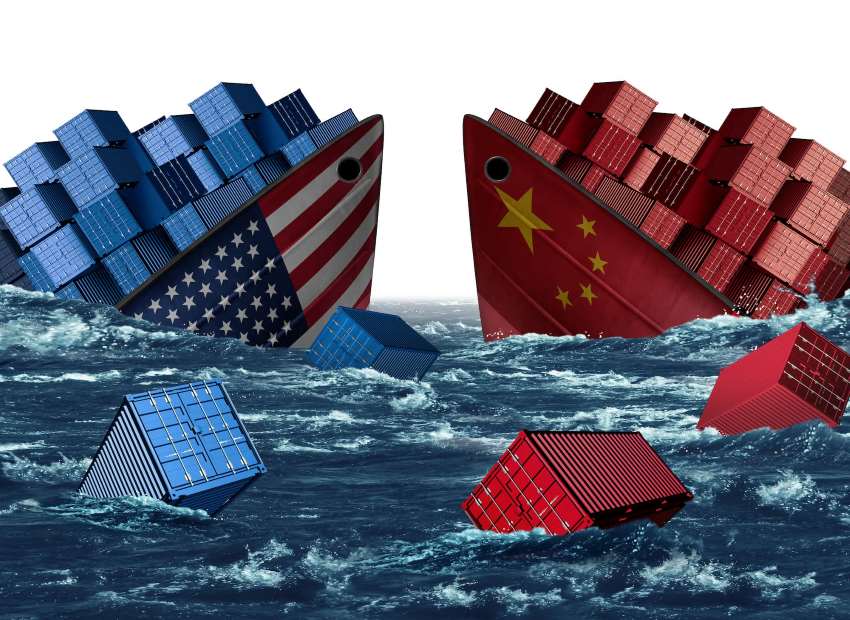FW
Bruce Atherley has been chosen the new executive director of Cotton Council International (CCI), the export promotions arm of the National Cotton Council of America. It was founded in 1956 and promotes US cotton through its global brand, Cotton USA. Based in Washington, and with a reach extending to more than 50 countries through 17 offices worldwide, CCI uses trade services and consumer promotion activities to increase exports of US cotton fiber, manufactured cotton goods, cotton seed and their products to Asia, Europe, Africa, and Central and South America.
Before joining CCI, Atherley served as VP, global marketing, Kao, a Tokyo-based global manufacturer of personal care and household products. He was president and general manager of Wrigley Canada. He has also been vice president of retail marketing, HJ Heinz. He holds accounting and management degrees.
New to the cotton industry, he brings an outstanding record of success in global marketing and management. His marketing career has established a track record of introducing brands and products into global markets in Asia, Latin America and Europe.
In India, CCI implements a Generic Cotton Education program, which strives to increase the demand among end consumers for products made from 100 per cent cotton, by addressing misperceptions about cotton and demonstrating its full potential through real world applications.
www.cottonusa.org/

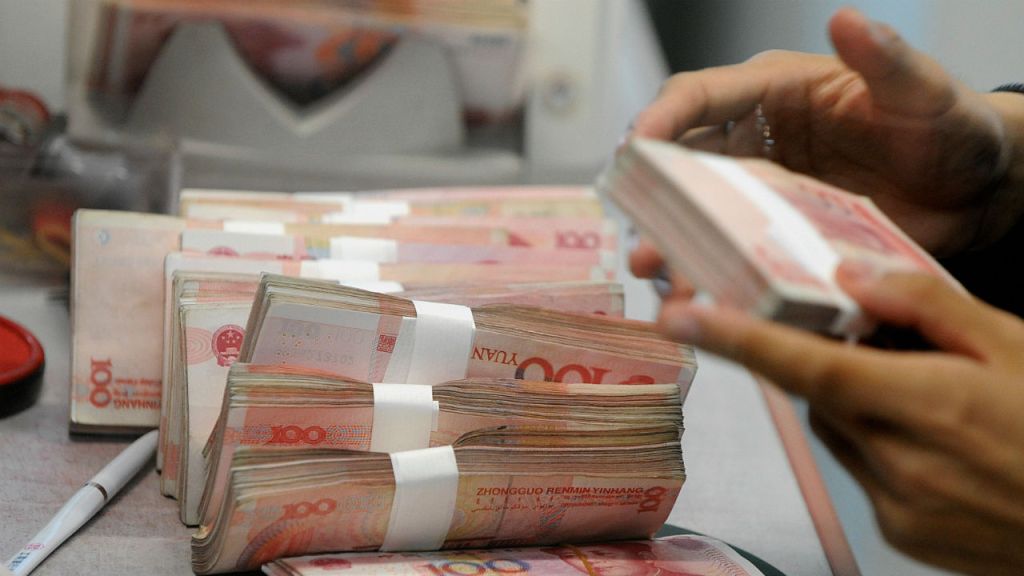
Due to this decision, local prices of textiles goods in China rolled over immediately, but in terms of the US$, they declined sharply making them cheaper in the international markets. For example, polyester staple fibre prices in the week ended August 14 were flat in Yuan terms from a week ago. They were down US cents 5 a kg or 5 per cent in the reference period. Similarly, polyester filament yarn prices were down US cents 5-8 a kg in a similar comparison. In concurrence, PSF and PFY prices were down US cents 3 in India unchanged in Pakistan.
A sudden shock
The devaluation has had a ripple affect on India as well as the country stands to lose on two counts: competition and pricing of high value-added products. India competes with China for exports in textile sector which could be hit. Also, if China's imports come down significantly since goods will be dearer for import, India would again take a beating. Or else, China may import low value-added items such as cotton or grey yarn or grey fabric from India and convert them into high value apparels. Thus, India’s exports will be hit since ‘Made in China’ will be cheaper than ‘Make in India’.
The sudden decision to devaluate China’s currency has sent shock waves through the textile markets. Therefore, the long-held and even complacent view, in terms of currency pairing has been upset that the RMB was set to rise with the US$.
For India, this devaluation is a big blow as rupee volatility will rise, exports will come under pressure. Also, the sharp devaluation in the RMB will help China dump its goods in India, feels Asscocham. This will impact domestic manufacturers.
How India will be affected?
Falling of the rupee would have helped domestic exports normally. These have contracted for seven months at straight till June 2015. Analysts though, are hoping that because of a global slowdown, there would not be a rise in domestic exports. Besides, India and China compete for several export items such as textiles, jewellery, gems, etc. This too will go against domestic exporters, feel analysts.
Experts point out that the large overlap between Indian and China in markets and also products, highlights the threat Indian exporters face from China. Moreover, according to analysts, China is among the top five countries for exports from India and the slowdown in China’s economy will have a negative affect.
China has been facing serious economic challenges such as speculation on the stock markets, slowing growth, rising labour cost, etc. The time when textile producers diverted cash flow into the market, instead of paying their raw material suppliers, was when the stock exchange burst happened. Stock values have eroded, which forced more into export market, this was the only option left, which could be brought over by devaluing the currency that China did.
Yiwu will be held in China from November 30 to December 3, 2015. This is an event for knitting and apparel industry. It provides a stage for international textile enterprises to search and experience the most advanced and comprehensive automatic knitting, garment-making, dyeing and finishing machinery.
The exhibition embeds several theme zones covering knitting and hosiery machinery, sewing and automatic garment machinery, and dyeing and finishing machinery and is a one-stop sourcing platform for knitting and clothing industries. It aims to provide better services to new and recurring exhibitors and buyers. This year, the themes are green and sustainable production, automation and transformation of the textile industry.
Finishing and printing machinery will be showcased by Cubotex, Flainox and Kornit Digital. Bullmer, New Jack and Shing Ray will demonstrate their sewing and garment machinery. Gold Fai, Jingda and Jiasheng will display their braiding and zipper making and logo printing machinery.
Santoni, Lonati Spa and Aurora will present their knitting and hosiery machinery. High end knitting spare parts and knitting needles will be presented by companies like Yamagen, Yantex, and more. Warp knitting and yarn manufacturing machinery will be on display at the stands of Chemtax and Zhejiang Yuejian.
www.yiwuen.com/yiwu-market
A grant of Rs 30 crores allotted under the Rashtriya Krishi Vikas Yojana (RKVY) for promoting cotton cultivation in Punjab was reportedly diverted for purchasing a chemical solution against the attack of white fly insect on the fiber crop. But there are protests that the insecticide purchased by the state agriculture department is costly, spurious, and ineffective against white fly. The main charge is that the Punjab government had diverted 64.7 per cent of the RKVY funds, while its Andhra Pradesh counterpart had used 98.5 per cent of the grant for the mandated purpose.
The opposition wants an official investigation into the supply of spurious pesticides. It wants issues facing growers of cotton, potato, sugarcane, and other crops to be addressed without delay. The Rashtriya Krishi Vikas Yojana was introduced in India’s eleventh five year plan. This was in 2007.
The scheme envisaged a four percentage yearly growth in agriculture and related divisions. It looks to offer states and union territories the independence to draw plans for developing agriculture through a knowledge of local conditions, geographical and weather patterns, obtainable natural assets, technology, cropping models. It offers guidance on boosting the yield of agriculture and related sectors and ultimately maximising profits of farmers.
For the second quarter of 2015, Kordsa Global has had a 11.4 per cent increase in total sales compared to the previous quarter. Kordsa is an industrial yarn and cord fabric producer. Sales are expected to increase in the range of 10 to 20 per cent and EBITDA 25 to 35 per cent.
Despite the vulnerable course in money markets, Kordsa Global, which makes 77 per cent of its sales in dollars and 23 per cent in euro, benefited from the situation and performed better than it had targeted. The company has invested in a composite technology center, which will become operational in 2016. This investment will lend it the capacity to produce advanced composite material technologies that transform many sectors from aviation to automotives.
With its strong technical infrastructure, long-term customer relations, and balanced portfolio in various geographies owing to its global structure, Kordsa Global is reaping the fruits of the wealth of experience it has accumulated in 42 years. Kordsa has reinforced its presence in the Asian market with a plant in Indonesia that was commissioned at the beginning of 2015. With its new-generation yarn production capability, it’s planning to make full use of this additional 18 kiloton capacity gradually in three years.
www.kordsaglobal.com/
The latest official statistics state reveal in the seven months leading up to August, Vietnam’s textile industry has attracted inward foreign direct investment (FDI) and continues to do so. Out of the estimated $5.85 billion pledged investment for the January-July period, at least $1.12 billion was designated for manufacturing and processing projects in the textile industry.
Foreign-invested transnational companies, particularly those related to yarn manufacturing, are rushing to shore up their supply chains in anticipation of free trade agreements in the offing, say experts. Reduced tariffs of the proposed Trans Pacific Partnership (TPP) do not allow Vietnam-based textile, garment or footwear manufacturers because of the yarn forward rules of origin. It would benefit Vietnam only if all yarn is manufactured in Vietnam or another of the 11 other TPP nations.
Other free trade agreements also fall under such provisions and the experts suggest that the complex rules of origin provisions are driving higher levels of inward FDI into the yarn industry in the country. Thus, if yarn from China was imported by a Vietnam based textile company, it could not avail itself of reduced tariffs for product shipments to the US or any of the other TPP member nations.
Once the TPP is fully implemented, Vietnam based manufacturers would enjoy tariff free exports when exporting textile and garment to other TPP member nations in lieu of the current 17-30 per cent tariff, subject to the rules of origin limits, as per the Vietnam Textile and Apparel Association (VITAA).
In Australia’s New South Wales, Southern Cotton’s inning business is a thriving $26 million-a-year business, a contrast from four years ago, when it was hardly anything, but had tremendous potential. The business is also the latest winner of the Regional Award at the 2015 Telstra Australian Business Awards. It won the award for its innovative use of technology and business sense. Fed up with the 800 km round trip to gin their cotton, the business is the brainchild of six grower friends who built their own facility. Directors Tim and Roger Commins, Gerard and John Toscan, Scott Hogan and Larry Walsh established Southern Cotton in 2011.
Nearly 100 local growers use Southern Cotton’s Whitton-based gin today considered a main driver of the region’s rebirth as a cotton-processing centre, serving more than 35,000ha of cotton crops. The facility has a state-of-the-art Radio Frequency Identification tracking system, which gives growers data from the paddock to the finished bale via smartphone or tablet—earning the business Telstra’s appreciation.
Southern Cotton is the only gins in the world to use the technology that captures, stores, and retrieves data on each cotton module to help growers learn more about their crop and help them in farm management decisions.
Besides, cotton-ginning, Southern Cotton, with 50,000 tonnes of cottonseed byproduct processed for livestock feed and cotton seed oil has developed new market opportunities. LPG gas is replaced by stalks, leaves and lint leftover, which are used after processing local cotton, to both power the gin. This produces a high-carbon by¬product that farmers can use to restore soil fertility and carbon content.
The decades old misconception that the LGBT community is not into sports has been busted. The community loves to play, talk about and watch sports. The community also actively supports local professional teams. As LGBT community nights are being organised everywhere—at colleges, minor league and major league sports games, sports apparel is now emerging to support the LGBT community, similar to other community nights that recognise military and children’s charities among others.
Yet, acquiring the necessary licensing to produce sports clothing related to teams can be tricky as everything needs to be checked off. This has to be done before items are produced by approved apparel companies. Located in Westwood, Massachusetts, ’47, is a company that sees a huge opportunity and market for licensed sports merchandise. The company is a licensed partner with the National Hockey League, Major League Baseball, the National Football League, the National Basketball Association and more than 650 colleges.
The company is one year into testing the market for the response on the niche market, LGBT sports apparel. Brian Maurer, a sales representative for ’47 said that the company was still in a nascent stage where the LGBT line of apparel was concerned. They started on a small scale and until now have only produced caps and shirts, he added.
Major League Baseball was the firs that ’47 reached out to and the league first approved apparel for the Boston Red Sox, San Francisco Giants and the New York Yankees. The popular Night OUT Series of Washington, DC hosted by Team DC with LGBT community nights is held annually with professional sports teams such as the DC United, Washington Nationals, Washington Kastles Washington Mystics, and the Washington Prodigy.
Continuing with its training programs and workshops in the apparel industry, ATDC (Apparel Training & Design Centre), India’s largest vocational training network for the apparel sector organised a three day workshop on ‘Skill Knowledge Enhancement’ aimed at training the supervisors and floor managers.
The workshop was held at ATDC Gurgaon where industry experts guided the participants. Nimish Dave, CEO & Founder, The Idea Smith; Neera Chandra, Consultant; Team of Experts from Shahi Exports under the guidance of J D Giri, Director, Shahi Exports imparted training to the participants. More than 30 participants from various industries of apparel sector attended the workshop. Prominent among them were Blackberry’s (KLPL), Blackberry’s (AVM), Shahi Exports, Gupta Exim India and Panorama Industries.
The training was professionally designed so that the participants could understand their roles and responsibilities and also learn the ‘best practices’ from leading experts of the apparel industry. They learnt that they should focus on productivity, quality and cost, without which, one cannot contribute to the optimum utilization of the resources and growth of organization. Focus areas at the workshop were garment classifications, measurements techniques, fundamental of specs sheets, seam and stitches, industrial engineering basics, workflow in the apparel industry, SAM/SMV calculations, productivity and quality improvement and compliances in the factory.
Darlie Koshy, DG & CEO ATDC & IAM said, “While this three-day training programme has given the impetus for supervisory staff to especially look at industrial engineering, cost saving methods and labour control and motivation, it is necessary that training is taken as a continuous process. We need to train staff at every level including the labour force to become more efficient and productive. He requested the export community to continuously focus on training and retraining for better commitments and for improving competitiveness.”
www.atdcindia.co.in
The fourth international textile and apparel fair 'Vastra' will be held in Jaipur, from September 28-30. It aims to promote India as a prominent sourcing hub and investment destination in the textile sector. The fair is being organised by Rajasthan State Industrial Development and Investment Corporation (RIICO) in collaboration with FICCI and Union Ministry of Textiles. Around 250 exhibitors, 400 overseas buyers and 60 Indian buying houses are expected to attend the mega fair.
According to Veenu Gupta, Managing Director of RIICO, who is also Principal Secretary, Industries, at the recent Delhi Roadshow, Memorandum of Understanding (MOUs) for textile projects worth Rs 2,500 crores were signed. The Vastra fair provides an apt platform for display of latest offerings in textiles, also assisting participants and exhibitors for forming new business relations, exports, partnerships worldwide and locations for setting up businesses in India, among others.
Overseas buyers are mainly expected to visit from countries like Algeria, Australia, Hong Kong, Italy , Japan and the UK. Business worth $85 million was generated during 'VASTRA -2014' held in Jaipur last year.
www.vastratex.com


